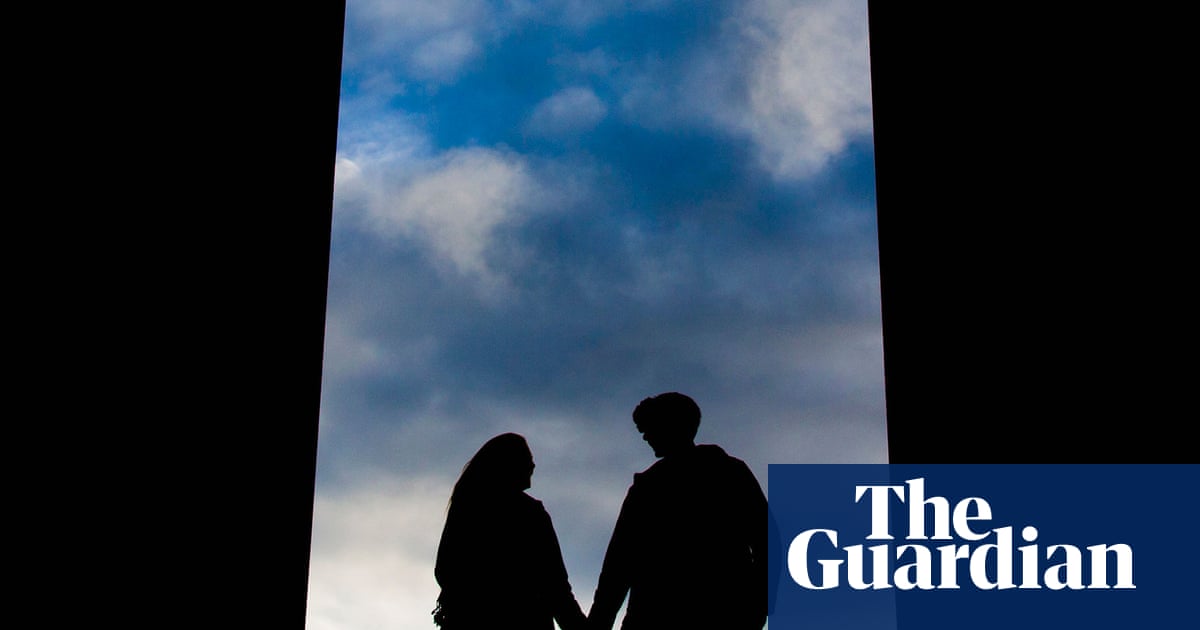If there is something familiar about a play comprising disparate scenes from a single woman’s life, performed by five different actors, that is because it was the central conceit of Annie Ernaux’s The Years, searingly adapted for the stage last year.
Mary Page Marlowe premiered before that, in 2016, at the Steppenwolf theatre in Chicago, and takes similar shape. There are 11 scenes, non-chronological, that travel 70 years around the life of Mary Page Marlowe, an accountant, wife to three husbands, mother to two children and daughter of an alcoholic, who becomes perilously dependent on drink herself. She too is portrayed by five actors (and a doll).
Comparison between the plays might be unfair – they form cubist portraits of two very different women, living in separate continents and times, yet still one casts a shadow over the other. This play by the celebrated American playwright Tracy Letts has many searing scenes, and is highly watchable with always-excellent dialogue, but it is not quite as polyphonic or as whole.

Its stardust is certainly greater, though. If London theatre has seen an influx of Hollywood royalty of late, it could hardly get any more regal than Susan Sarandon, who plays the protagonist at her oldest alongside Andrea Riseborough, who is a midlife Mary.
Like Letts’ 2007 Pulitzer prize-winning drama August: Osage County, this drama revolves around the world of the family with all its fractiousness, spiky humour and love-hate.
It opens with Mary announcing her divorce to her children and flips backwards or forwards from there, not to draw a line of correspondence between scenes, or explain how Mary got from here to there, but merely, it seems, to show her in different ages and states. They are flashing memories, some quiet, others explosive.
It is beautifully directed by Matthew Warchus, who elicits magnificent performances from the ensemble. Sarandon performs with ease, assurance and total ownership of her character; Riseborough, in scraped back ponytail, is astonishing as a woman whose life has hurtled off-course. Rosy McEwen, as an unfaithful wife who feels like an actor in her own life, is a scintillating, dangerous force on stage. The two youngest Marys – the 12-year-old trying to impress her heavy-drinking mother, played by Alisha Weir, and Eleanor Worthington-Cox’s hopeful high-school pupil – are also a pleasure to watch, as is the entire cast.

The scenes are powerful in themselves too, with a naturalism that captures the testiness of intimate relationships – from a sweet scene of a sleepover with friends who predict a future of bright hopes for Mary, to confessions of unhappiness to a therapist. One of the most moving features Sarandon as an elderly Mary, pressed up against death, on the verge of articulating something momentous, then withholding it.
That, in a frustrating sense, is what Letts does with his play. Staged in the round, Rob Howell’s set is nicely gestural – a bottle of booze is never far out of reach. The round shows Mary from all sides, in theory, yet you do not see her clearly at all. She remains elusive, with caesura between scenes that are too wide to form a bigger picture. Maybe that is the point. But it leaves you wanting to know – and crucially to feel – more.
Where The Years suggested that we, as individuals, contain multitudes, the point of the five actors here is more slippery. Important questions are asked through them: do we ever know ourselves? Are we Shakespearean actors merely assuming parts? And how does the assuming of a role intersect with the conditioning that women imbibe and that Mary wants to rebel against but ultimately submits to? The play raises these questions and then lets them fall away, unanswered. And is it showing Mary as a mere actor on life’s stage, or what lies beneath that mask? I’m not sure.

.png) 1 month ago
49
1 month ago
49

















































